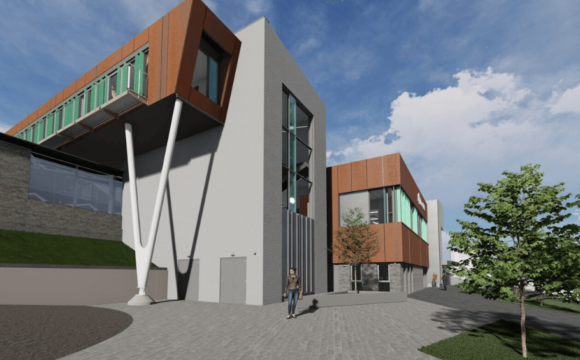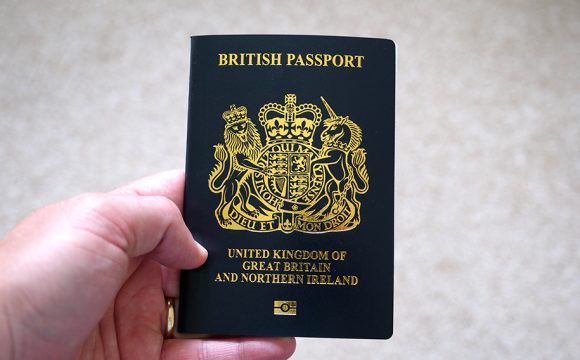The long struggle for women’s suffrage and the debates it has inspired across homes, workplaces and communities will be explored in 2018 as part of the conservation charity’s commemoration.
Women and Power events, exhibitions, on-site tours and creative commissions will take place at places with links to both sides of the suffrage movement. The Trust has also invited a number of contemporary thinkers and artists to reflect on the significance of the centenary of women’s suffrage.
A number of National Trust places across Northern Ireland have unique stories to tell about the people involved in the fight for women’s suffrage. They include:
- Mount Stewart, County Down, where Edith, Lady Londonderry was an ardent suffragist and political campaigner, whose pro-suffrage behaviour caused her mother-in-law to label her ‘a young hound running riot’
- Castle Ward, County Down, where Mary Ward worked as a naturalist, astronomer, microscopist, author and artist.
- Giant’s Causeway, North Coast, where local women entrepreneurs helped put the Giant’s Causeway on the map
- Florence Court, County Fermanagh, where the Cole family women shaped and influenced this special place to be what it is today
In contrast, the programme will also explore some of those who opposed women’s suffrage, including the Trust’s co-founder Octavia Hill, who speculated that ‘a serious loss to our country would arise if women entered into the arena of party struggle and political life’.
Over 100 other Trust places across the UK will respond to the anniversary by giving greater prominence and depth to the stories and experiences of women from many periods of our history, some of which have been overlooked in the past.
Heather McLachlan, Regional Director for Northern Ireland said: “International Women’s Day offers us a unique opportunity to recognise and celebrate the great strides that have been made in the drive for equality.
“Women and Power is a year long programme and seeks to explore the complexity of the histories of power and gender and will give voice to the, sometimes hidden, lives and legacies of women who lived and worked across the special places now in the care of the National Trust.”
Over the course of the year, online and published resources will be available, including a podcast series and a new guidebook exploring the struggle for suffrage at Trust places, co-authored by the Trust’s Rachael Lennon and Dr Sophie Duncan, a specialist in women’s political activities and the suffrage movement at the University of Oxford.
Sophie Duncan said: “I’ve thoroughly enjoyed helping the Trust illuminate the vital stories of the women who shaped their properties. These eclectic, passionate and sometimes controversial women changed history forever, and the Trust is ideally placed to share their stories.”
Women and Power is the theme for the second year of the Trust’s ‘Challenging Histories’ programme. This national public programme aims to share, celebrate and unpick some of the more complex or hidden histories relevant to National Trust places.
For details of events and activities in the Women and Power programme for 2018 check out ‘Women And Power‘ and ‘Celebrating Remarkable Women in our History‘.
- The Representation of the People Act of 1918 granted the vote to all women over 30 who were householders or married to householders, owners of property worth more than £5, or university graduates. It also granted the vote to all men over 30.
- In 1928, the Amendment of the Representation of the People Act allowed everyone over the age of 21 to vote.
- Octavia Hill was seen by suffragists as truly deserving of the vote. In 1884, Millicent Fawcett spoke of ‘thousands of women who daily fulfilled all the qualifications for the suffrage… notably Miss Octavia Hill who had… solved the question of the housing of the poor’. A social reformer, Hill helped drive the development of social housing in Britain. She also believed in the right to clean air and open spaces, co-founding the Trust as she lobbied to save green spaces from development. However, Hill was anti-suffrage, writing in a 1910 letter to The Times: ‘a serious loss to our country would arise if women entered…political life’. She worried that the vote would take women away from ‘the quiet paths of helpful, real work…’
National Trust guidebook – Women and Power: The Struggle for Suffrage (Dr Sophie Duncan and Rachael Lennon)
Celebrating a year of Women and Power programmes throughout the National Trust, this guidebook explores the roles of Trust places in the women’s suffrage movement, through the people who lived and worked in them – from the Midlands kitchen-maid turned suffragette arsonist to the aristocratic dynasties split by a daughter’s campaigning.
















